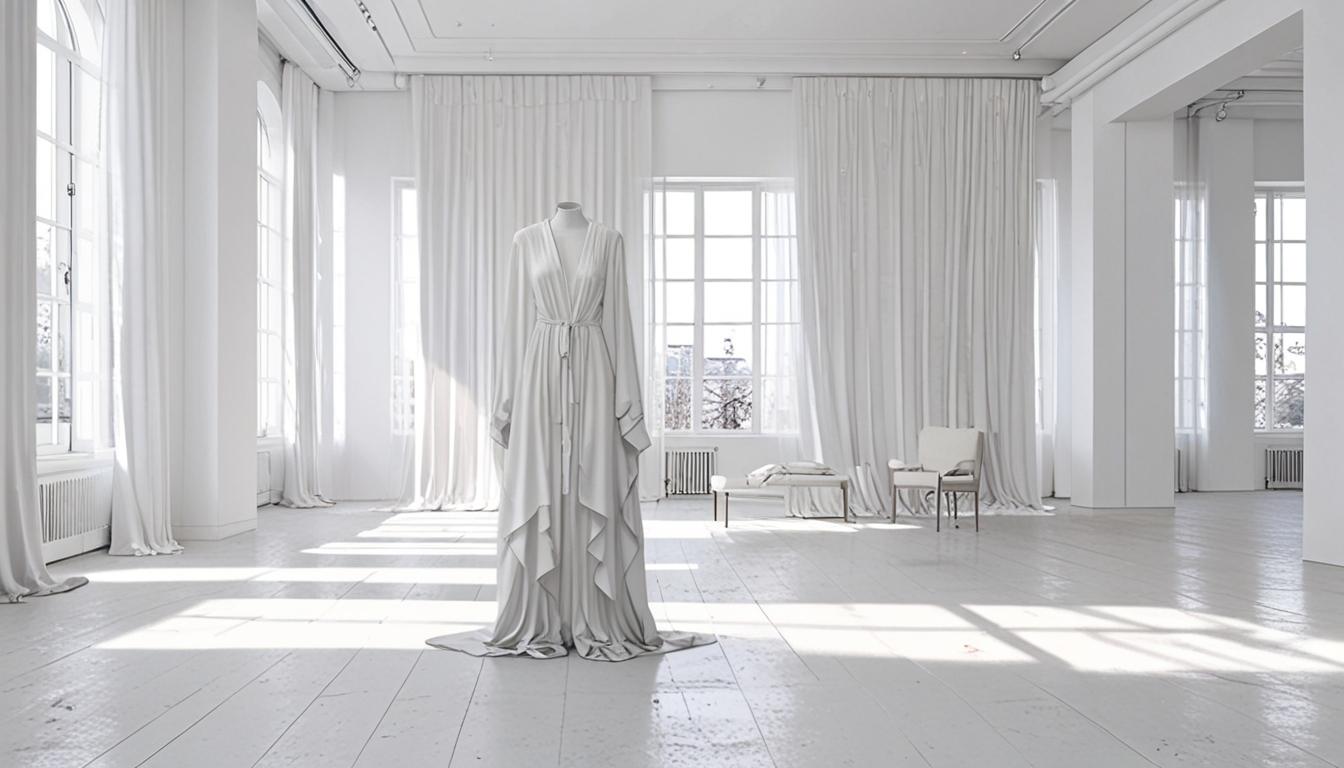An exclusive sale in Paris featured 150 pieces curated by Byronesque, highlighting the intersection of personal stories and fashion history through Martin Margiela’s iconic designs.
Byronesque, a contemporary vintage brand that specializes in selling collectors’ archives and reviving dormant fashion labels, held an exclusive sale in Paris featuring a selection of 150 pieces designed by the renowned Martin Margiela. The event, titled “Martin Margiela: Not an Auction, For The People,” took place in a setting that reflected Margiela’s signature aesthetic—an all-white apartment nestled in the Palais Royal, adorned with cotton sheeting that evoked memories of Margiela’s own Parisian atelier.
Gill Linton, Byronesque’s CEO and Editor in Chief, curated the sale, which showcased a single woman’s impressive collection: Christina Ahlers. A veteran fashion executive and former collaborator of Margiela, Ahlers has a deep connection to the designer and his work. She is notably featured in Annie Leibovitz’s iconic photograph of the Margiela team published in Vogue in September 2008. Ahlers felt the moment had come to part with a significant portion of her collection, though she decided to retain some pieces, acknowledging how fashion can hold emotional resonance over time.
In a conversation with Vogue, Ahlers reflected on her unexpected journey into fashion. Initially pursuing a career in criminal law in Germany, she found her passion shift after interning at a commercial fashion showroom. “I needed a Plan B,” she explained. Ahlers desired to work specifically with Margiela, as his innovative designs had fascinated her since childhood, inspired by her mother’s career in fashion. One particularly memorable piece she encountered was a felted wool vest designed by Margiela.
Ahlers also reminisced about the early days of her exploration into Margiela’s designs during her student years in Hamburg. She would travel to Munich to visit a store that held one of Margiela’s iconic caban jackets—the famous peacoat characterized by leather buttons. Her repeated visits caught the attention of the store’s owner, who eventually offered her a discount, expressing confidence that she would become a dedicated Margiela customer in the future. “I still have that caban jacket,” she remarked, emphasizing the sentimental value such pieces can hold.
The collective effort behind this sale fosters a dialogue around the stories woven into each garment, reflecting both the designer’s legacy and the personal history of its previous owner. Ahlers, Linton, and fellow Margiela devotee Aurora Lopez Mejia shared their insights during the event, connecting the sale of these items to broader themes of identity, nostalgia, and the impact of fashion on personal narratives. Margiela’s work continues to resonate deeply within the fashion industry, underscoring his significance as a designer who remains elusive yet profoundly influential.
Source: Noah Wire Services




